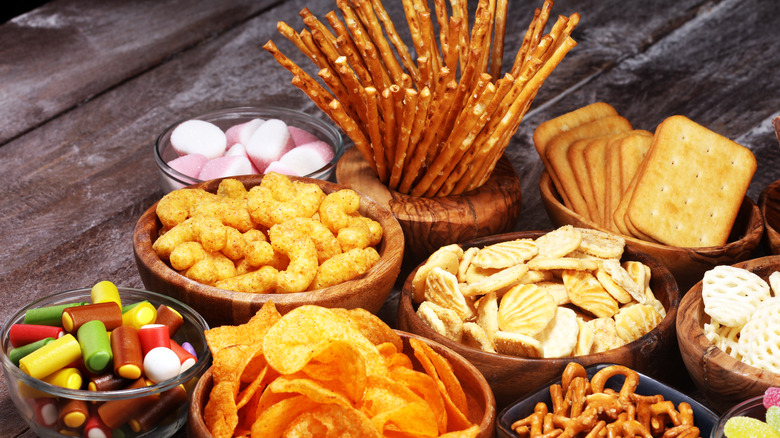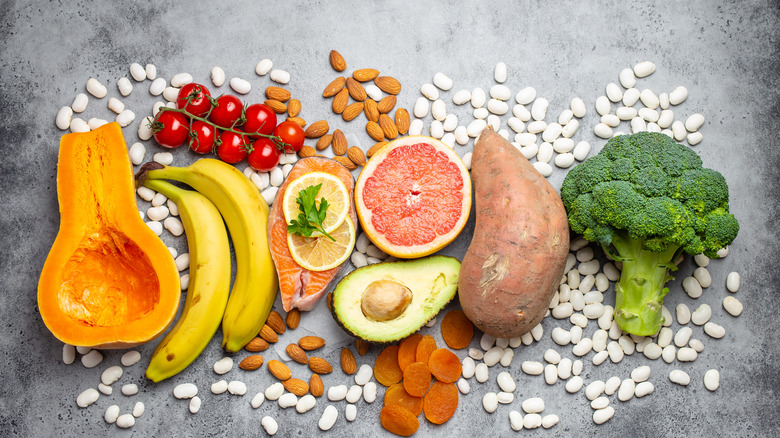What You Should Eat When You've Had Too Much Sodium
Indulgent meals like pizza may taste delicious while you're enjoying them, but the after effects of an overly salty meal can be difficult. Some people report side effects like bloating, dehydrating, fatigue, and headaches after a particularly high sodium meal.
It is important to keep sodium at the 2,300 milligrams per day recommended by the United States Department of Agriculture to mitigate risks of heart disease, high blood pressure, and stroke (via Eating Well).
But no one is perfect, so you will likely consume a high-sodium meal from time-to-time. There are some foods that can battle your mass sodium intake. The secret ingredient? Potassium — the counterpart of sodium that helps regulate blood pressure.
Bananas are a well-known choice for a boost of potassium, containing 420 milligrams in one banana. Another fruit that is high in potassium is kiwi, with 148 milligrams. Kiwis also contain enzymes to help with digestion, which can aid your bloating caused by sodium, according to Eating Well.
Foods with high potassium levels
You also don't want to forget about your vegetables. Avocados pack 560 milligrams of potassium, as well as fiber. Eating one cup of leafy greens like spinach can provide a whopping 840 milligrams of potassium, and their low-calorie count won't hurt, either. Legumes like white beans and dairy products like yogurt can also help lower sodium levels with potassium and additional health benefits. One half-cup of white beans contains 595 milligrams of potassium, protein and fiber, and probiotics found in yogurt are good for gut health.
Drinking fluids is imperative when battling a salty meal. Water is a given hydration choice, as you need to get balance back out your body's proper sodium-to-water ratio (via Healthline). Coconut water is a naturally high potassium provider and contains electrolytes. And herbal teas can be soothing to your stomach, while stimulating your digestion, according to Eating Well.
There is too much of a good thing, though. Drinking too much water or inundating your body with potassium via supplements over food can be dangerous. You should consult your health team with any nutrition questions about how to keep your potassium and hydration levels in balance.


